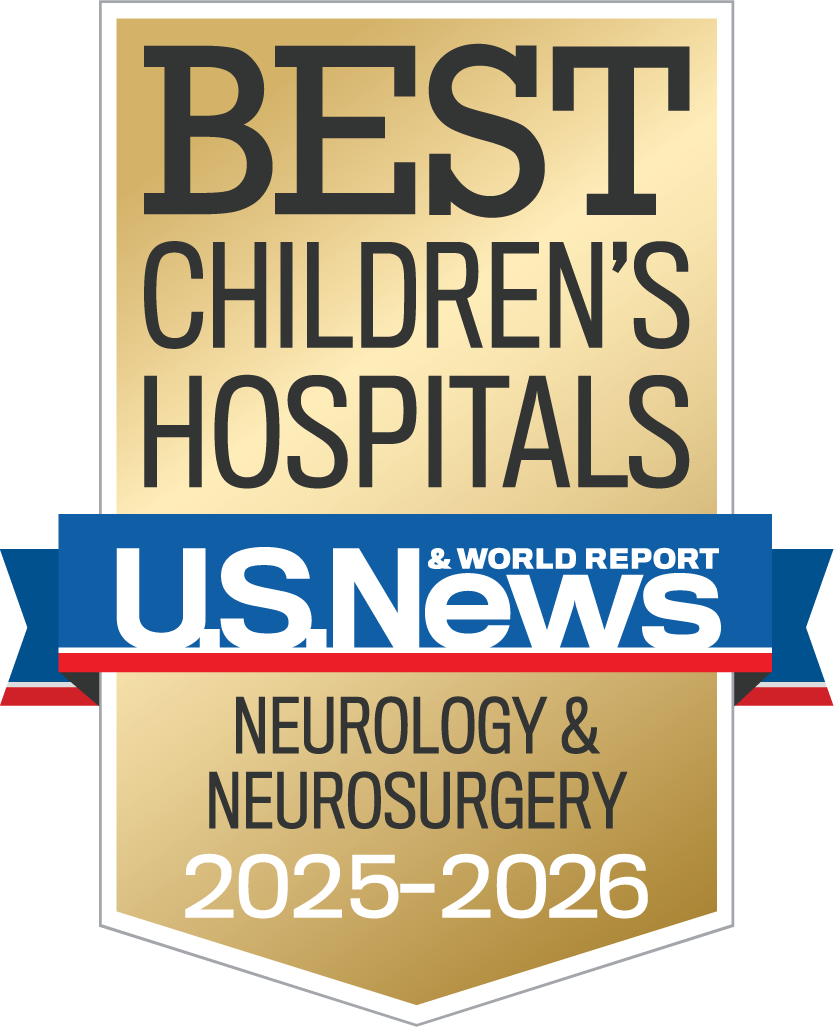The mind of a teenager can be at times mysterious and illusive. A pediatric neurologist, a pediatric neuropsychologist and a pediatrician who works with adolescents at CHOC offer advice for parents on how to better understand and connect with their teen.
Navigating adolescence with a still-developing brain
Adolescents’ brains are not yet fully developed during their current stage of life. Physical development can start as early as 8 years old, but the tail end of brain development doesn’t occur until closer to age 25. The more your child is exposed to new things, skills or experiences, the more connections their brain will develop.
“The brain is constantly developing through young adulthood. Just like we wouldn’t expect a baby to be able to speak or a toddler to be able to understand certain consequences, we have to have appropriate expectations for our adolescents,” says Dr. Sharief Taraman, a pediatric neurologist.

This constant development can lead to experimentation and in turn, a healthy decision making process.
“On the one hand, adolescents are more apt to experiment and make poor choices because their brains are still developing, but they are also more able than adults to learn from their mistakes and alter their perspectives,” says Dr. Jonathan Romain, a pediatric neuropsychologist. “I see adolescence as a period of great potential for growth and development.”

A parent’s role in teen brain development
The consequences of teens’ actions can help them link impulsive thinking with facts. This helps the brain make these connections and wires the brain to make this link more often. Parents play a crucial role in helping teens talk through consequences and decision making.
“Part of a parents’ role during this time in their child’s life is understanding that adolescents are practicing new reasoning skills they haven’t used before,” says Dr. Alexandra Roche, a pediatrician who works with adolescents. “Having abstract thinking is one new reasoning skill they need to practice. When they are trying to make a decision, it’s helpful for parents to let them explore various consequences.”

The primary part of the brain developing during this time is the frontal lobe. As this area develops, teens are better equipped for abstract thinking and executive functioning, such as planning their day and making decisions. The frontal lobe is also involved with connections and how we socialize with people as well.
“They’re learning that if A happens, then B or C is going to happen after that. Parents get frustrated at how adolescents handle peer relationships and how extreme their feelings can be, but these may happen because those connections are being formulated. Talking through consequences helps good connections to form,” says Dr. Taraman. “Decision making takes practice. If you want to play guitar, you take lessons and practice, and it makes you better. If you only take one guitar lesson, you’re not going to learn how to play. Decision making is the same thing; it takes practice and it is never too early to start teaching our kids how to make good decisions.”
How to teach decision-making skills to your teen in an interactive way
Remember that you are a role model for your teen’s behavior. When it’s time to make a big decision, show them how to make a matrix, weigh the criteria of what is important to you and them, and teach the decision making process in an interactive way.
Modeling reasoning behavior with your teen will affect how they explore and understand downstream consequences, says Dr. Roche.
“If they approach you and want permission to do something, have them do research via respectable sources and find out what’s appropriate for their age. Involve them in the decision making process. That’s how you can give them good tools instead of just deciding things for them,” says Dr. Taraman.
Talking to your kids is essential in the digital age. It’s common for teens to want to be on their smartphone around-the-clock, but that can spur an extreme fear of missing out. Figuring out how to turn off both the devices and the need to be constantly plugged in is important.
“Try setting technology-free zones or times in your home, such as the dinner table. Take turns going around the table and sharing the highlight of your day. It can spark conversations about other things that happened during your day and how you dealt with them. Teens can learn by example,” says Taraman.
Your teen’s friends also play a crucial role in their development, but peer pressure is not always a bad thing.
“Peer pressure can be positive in many cases, like trying a new sport or joining a new club at school. Experimentation is the way adolescents learn how to interact with their environment and peers,” says Dr. Roche. “Kids should be curious and try different activities.” Helping them plan ahead for unexpected events, such as being offered drugs or alcohol, can help your teen make the right choice when it counts.
How to calm an overly emotional teen
When teens are overly emotional and fixating on a problem they feel is the end of the world, there are several things parents can do to calm them down so they can start talking through their emotions.
“It’s very common for teens to be very dramatic. Whatever is happening in their world can seem like it’s the most important thing that has ever happened to them,” says Dr. Roche. “Help them identify the emotion they are feeling, and what is making them angry or excited, for example. Identifying the root cause of the emotion and then connecting that back to how that affects their decision making is important.”
Dr. Romain encourages parents to give their teen some space but remind them that you are available to listen.
“Not every problem needs a solution. Sometimes they just need someone to listen to them in a safe space. Encouraging journaling can also be a productive way of getting thoughts and feelings out,” he says.
Listen first and then expand on their statement.
“If they express hurt or disappointment, try to get them to more openly explain why something hurt their feelings,” says Dr. Roche. “Did they misinterpret a conversation?”
Allowing them to solve their own problems teaches independence and prepares them for adulthood.
“If you fix all their problems for them as a teen, then when they go off to college they won’t know how to deal with problems. We don’t just give them a driver’s license and tell them to hit the road. First they drive under supervision of a parent or guardian, and then they gradually gain more independence and responsibility,” says Dr. Taraman.
The power of positive reinforcement
Remind teens that they are resilient and competent. They may have trouble remembering past times they have overcome obstacles.
“Positive reinforcement helps encourage certain behaviors you’d like your teen to model,” says Dr. Taraman. “If they want to go to their friend’s house after school and they ask if that’s ok, say “no problem, thank you for asking.” And if they instead tell you they are going, say “Don’t you need to ask permission first?”
Positive reinforcement will also help them develop strong self-esteem. As they develop their identity, encourage your child to reflect on successes as well as challenges.
“During adolescence kids are coming up with self-identify, personal morals and ethics. This all relates to self-esteem. Comparing yourself to others is common but it can also set unwieldy expectations. Identify their unique strengths (for instance music, but not math) and focus on encouraging them to pursue those,” says Dr. Roche.
When to seek help for your teen
Adolescents are prone to addictive behaviors. If they use certain chemicals such as drugs and alcohol, it can hard wire their brain in a certain way. If they are experiencing anxiety or depression and it is not acknowledged and treated, they are more likely to experience those into adulthood.
“It is important to keep an eye out for symptoms of depression and anxiety that extend beyond normal grief and loss. Check in with your child periodically and be aware of changes in behavior pattern. Persistent irritability, sadness, disrupted sleep, and lack of interest and isolation are some things to look out for that likely warrant a check-in with a counselor or psychologist,” says Dr. Romain.
A few days of emotional outbursts might just be a normal sign of adolescence, but if they are persistently practicing abnormal behavior, it may be a sign to seek additional help. Remind your child that you are there for them, says Dr. Taraman, but also empower your teenager to explore the resources available to them, with or without their parents’ help. Suicide hotlines (1-800-Suicide) or adolescent clinics can help them obtain resources without the help of their parents.
“Because adolescents have so many obvious physical changes, it’s easy to forget the cognitive changes going on in this phase. It’s the most exciting change for kids but can be very frustrating for parents,” says Dr. Roche. “Remember to enjoy the experience of watching your kid develop into an adult.”
Get more expert health advice delivered to your inbox monthly by subscribing to the KidsHealth newsletter here.

Learn more about CHOC’s Neuroscience Institute
CHOC Hospital was named one of the nation’s best children’s hospitals by U.S. News & World Report in its 2025-26 Best Children’s Hospitals rankings and ranked in the neurology and neuroscience specialties.





